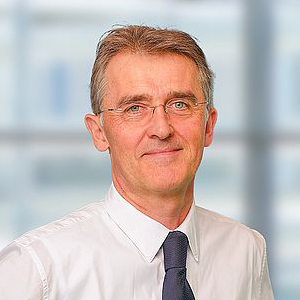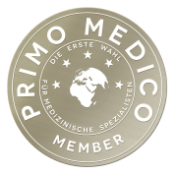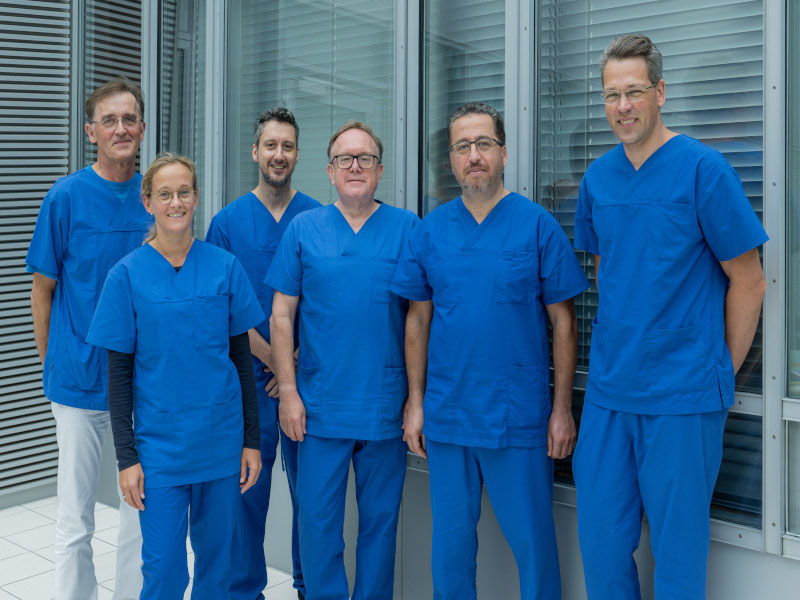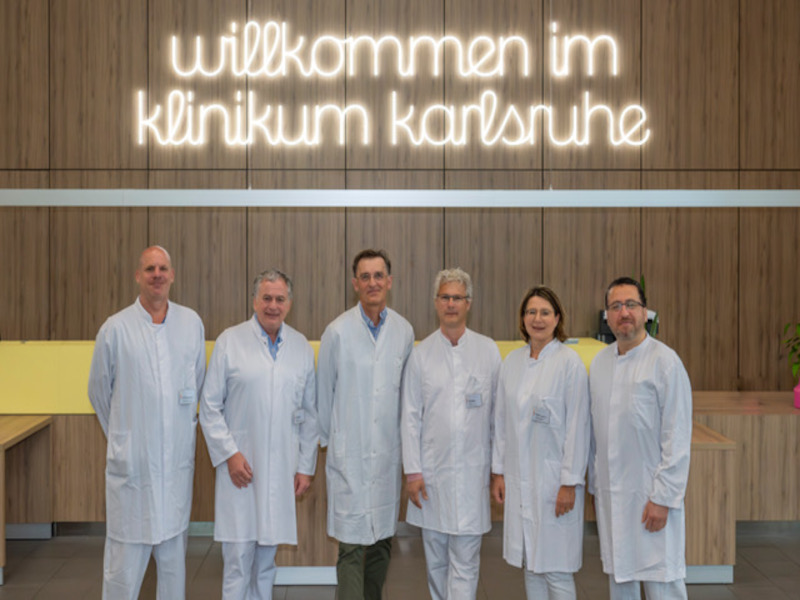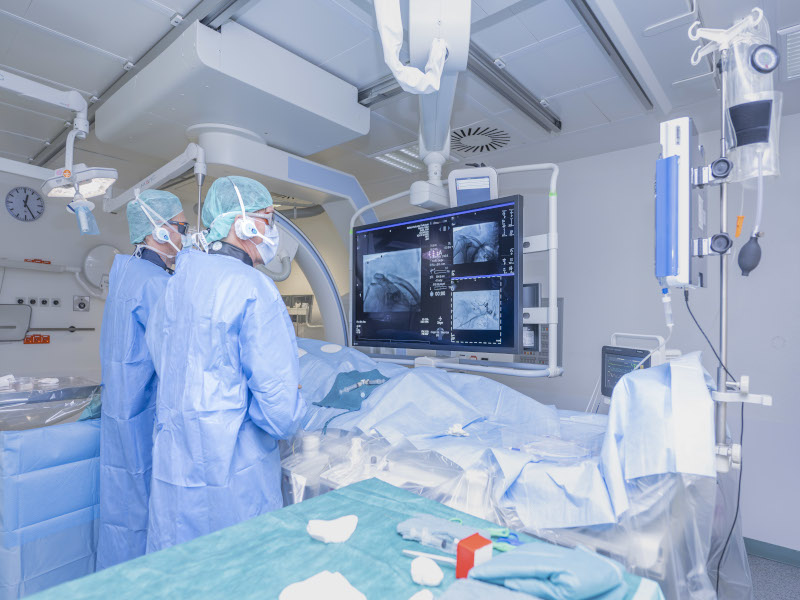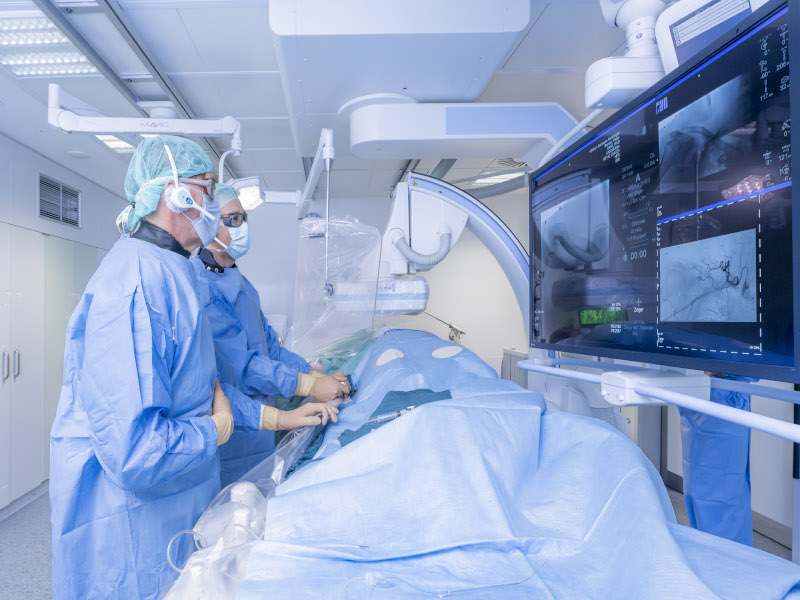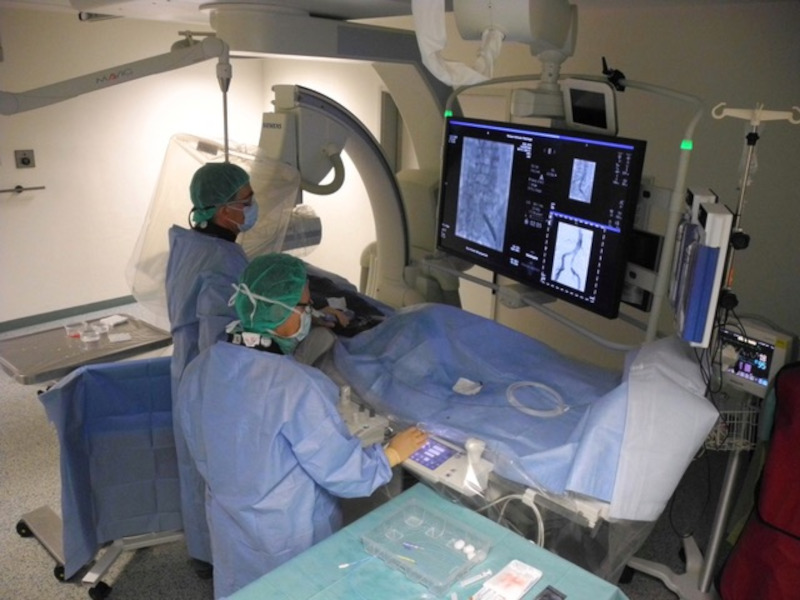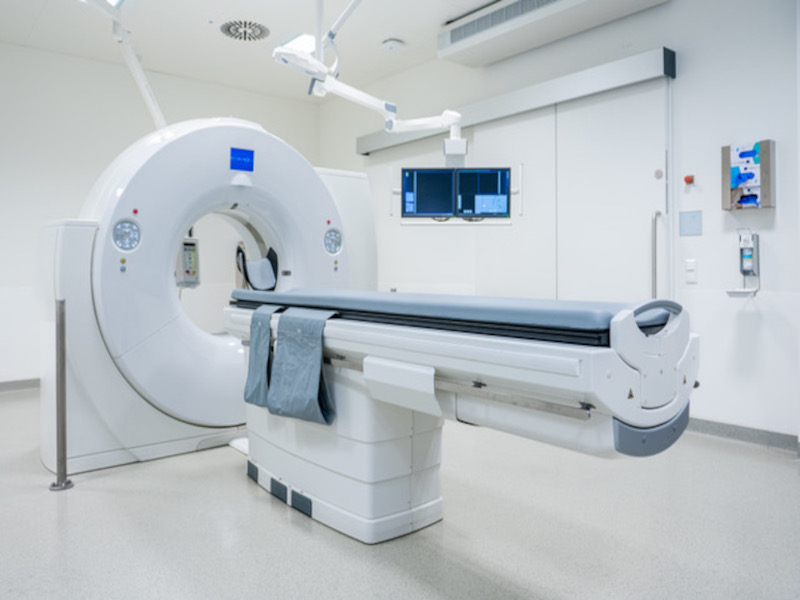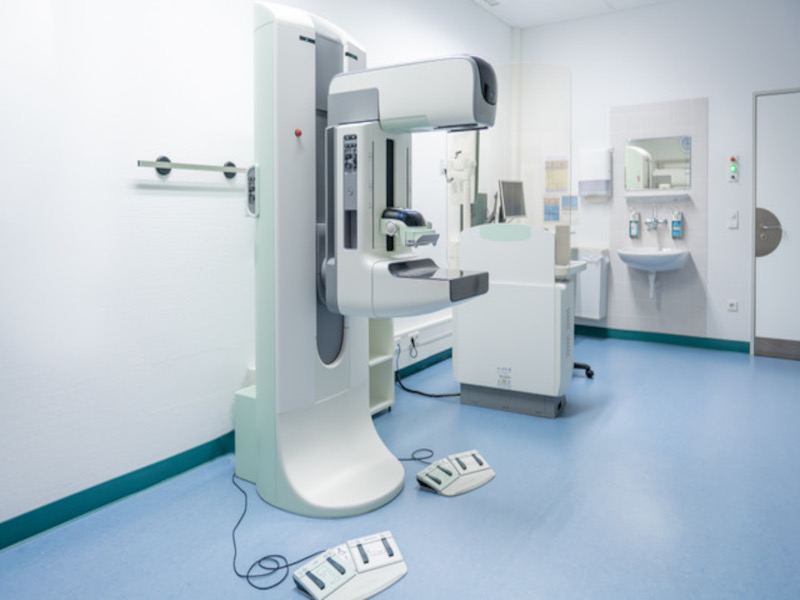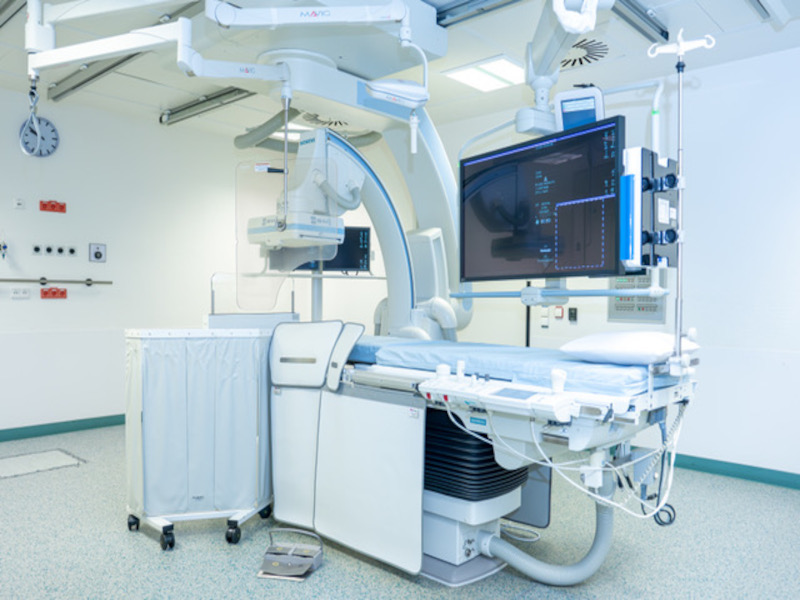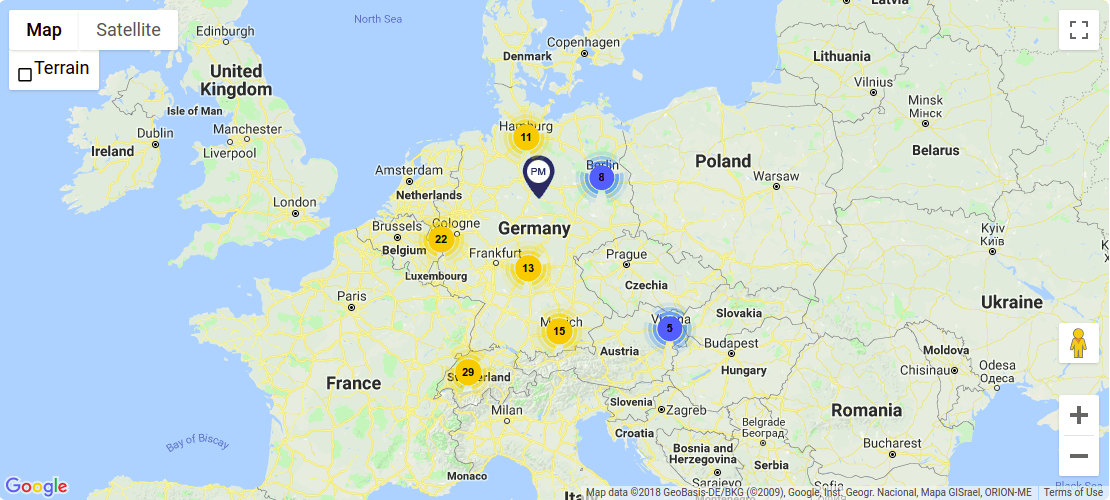Specialist in Radiology in Karlsruhe (Baden-Württemberg): Prof. Dr Peter Reimer
Treatment focus
- Abdominal diagnostics (hepatobiliary organs, pancreas, small and large intestine, kidneys, adrenal gland, prostate, urinary bladder)
- Cardiac diagnostics (CT and MRI)
- Diagnostics of vascular diseases
- Minimally invasive tumor treatments
- Minimally invasive "revascularization" vascular interventions (PAD)
- Minimally invasive "occluding" vascular interventions (embolization, pain treatments)
Contact
Municipal Hospital Karlsruhe
Institute for Diagnostic and Interventional Radiology
Moltkestraße 90, D-76133 Karlsruhe
P: +49 721 9861 3086 F: +49 721 974 1909
Consultation Hours:
By appointment
Medical Range
Range of Diagnostic Services
- Computerized tomography
- - Heart and vessels
- Abdomen
- Thorax - Magnetic resonance imaging
- Heart and vessels
- Abdomen
- Liver/hepatobiliary organs
- Prostate
- Breast
Range of Therapeutic Services
- Vascular therapeutic procedures - Vascular opening procedures for circulatory disorders
- Vascular occlusive treatments (embolization) of various organs (uterus, etc.) and disorders (joint pain, vascular malformations, etc.) - Interventional oncology (tumor treatments)
- Microwave ablation
- Radiofrequency ablation
- Cryoablation
- Transarterial chemoembolization
- Radioembolization - MR-guided tissue sampling (biopsy)
- Breast
- Prostate
More Information
Card
Prof Dr Peter Reimer is a specialist in radiology and director of the Institute for Diagnostic and Interventional Radiology at the Städtisches Klinikum Karlsruhe.
The Institute for Diagnostic and Interventional Radiology, accredited by the International Accreditation System for Interventional Oncology (IASIOS), and its competent team led by Prof Reimer, offers the full range of modern radiology services, including diagnostic imaging and interventional (minimally invasive) therapy for a wide range of human diseases.
The Latest Vascular Treatments for Circulatory Disorders
Throughout a lifetime, biological inclusion body processes can gradually lead to the narrowing or blockage of blood vessels in the entire body. These so-called stenoses can affect, for example, the abdominal aorta or arteries in the legs and cause muscle pain when under stress. Vessels leading to the kidneys can also be blocked by inclusion bodies, causing severe blood pressure crises and secondary damage through a feedback mechanism. Similarly, stenoses of individual intestinal arteries can lead to gastrointestinal complaints or the death of intestinal sections.
Therefore, it may be advisable to consult an interventional radiology specialist early to prevent such severe complications. At the Städtisches Krankenhaus in Karlsruhe, patients with such complaints are treated individually and routinely by the team led by Prof. Reimer, using the most modern methods. In most cases, a catheter is inserted through the femoral artery to the site of the blockage in the vascular system so that medication can be administered, blood clots removed, and stents implanted locally.
Prof Reimer is considered an expert in interventional radiology, with the additional qualification "EBIR/European Board Interventional Radiology" from CIRSE and a specialization in neuroradiology.
Precise Diagnostics: CT and MRI for Examinations of the Heart and Internal Organs
In addition to interventional procedures, the entire spectrum of diagnostic radiology is available at the Städtisches Klinikum in Karlsruhe. Professor Reimer uses computed tomography to produce high-resolution cross-sectional images of the body that provide information about the structure of the heart, lungs, blood vessels, and other organs. This is particularly important when examining vascular diseases, tumors, or inflammations. CT also plays a crucial role in evaluating vascular changes such as aneurysms or arterial constrictions.
Magnetic resonance imaging does not use radioactive material. It provides an even more precise image of soft tissue and organs, making it an indispensable tool for examining the cardiovascular system and internal organs. In particular, Prof Dr Reimer uses cardiac MRI to assess heart diseases such as heart attacks and heart valve problems to plan the best possible treatment.
Vascular Embolization: Help with Aneurysms or Vascular Malformations
Prof Dr Reimer is a recognized expert in vascular embolization for aneurysms and vascular malformations. He also successfully uses this minimally invasive technique in emergencies to prevent dangerous bleeding. He can close the affected vessels without needing major surgery using the most modern procedures, such as embolization with special tissue adhesives. The frightening expansion of aneurysms can also be effectively prevented by using metal spirals or flow diverters. Prof Reimer uses image-guided techniques such as CT, MRI, and X-rays to navigate to the incident site, enabling him to identify the exact location of the vascular malformations and carry out precise treatment.
Gentle Biopsy Procedure for Diagnosing Prostate Cancer and Breast Cancer
Prof Dr Reimer has also earned an excellent reputation as an expert in the diagnosis of prostate cancer and breast cancer. In particular, Prof Dr Reimer can make a reliable diagnosis using highly developed, minimally invasive techniques, such as a precise prostate biopsy or a breast tissue biopsy. This optimizes the treatment options for these common cancers.
He relies on the latest image-guided techniques such as ultrasound, CT, and MRI for targeted removal of tissue samples. These methods allow samples to be taken from suspicious tumor sites without the need for open surgery.
Targeted Pain Therapy for Joints, Tendons, and Spine
The Städtisches Klinikum in Karlsruhe can draw on many years of experience treating pain patients. Prof Reimer uses the large-scale equipment in his radiology arsenal to block the transmission of pain with great precision. Image-guided injections (e.g., periradicular injection (PRT) or epidural injections) or embolization treatments of diseased vessels of joints or tendons (e.g., for arthrosis pain in small and large joints or overuse complaints of tendons) are used for this. As part of these therapies, painkillers or anti-inflammatory drugs are injected directly into the nerve root at the spinal cord, or vessels in joints or tendons are treated temporarily without damaging the surrounding tissue. Prof Dr Reimer can determine the exact position of the injection using radiological imaging, thus ensuring maximum effectiveness and safety. These techniques are particularly successful for degenerative diseases of the spine and painful joint and tendon complaints.
Interventional Oncology: Tumor Treatment by Minimal Intervention
Prof Dr Reimer is considered a leading specialist in interventional oncology and has broad experience in advanced minimally invasive procedures such as SIRT (selective internal radiation therapy) and TACE (transarterial chemoembolization).
SIRT involves injecting radioactive microspheres directly into the tumor's blood supply. These microspheres are equipped with radioisotopes that emit radiation to destroy tumor tissue while leaving healthy tissue largely untouched selectively.
TACE combines targeted chemotherapy with embolization, in which the blood supply to the tumor is interrupted. Without a supply of nutrients from the blood, tumor growth is stopped, and the effect of chemotherapy is enhanced. Both procedures are used in particular for liver tumors and metastases and offer a less invasive alternative to open surgery, reduce recovery time, and minimize the risk of complications.
Curriculum Vitae
| Since 2023 | Chairperson Radiation Protection Committee CIRSE |
| 2019-2022 | Executive Committee CIRSE, Chairperson Research Committee |
| 2017-2019 | Executive Committee CIRSE, Chairperson Members Committee |
| 2012-2023 | Board of Directors of the German Society of Interventional Radiology and President from 2018-2021 |
| Since 2009 | MBA in Health and Social Services Management |
| Since 2006 | Medical Specialist in Radiology |
| Since 2000 | Appointment as Extraordinary Professor in Radiology at the Universitätsklinikum Münster |
| Since 1999 | Director of Radiology at the Klinikum Karlsruhe |
| Since 1999 | Additional Title Neuroradiology |
| Since 1998 | Appointed University Lecturer |
| Since 1996 | Appointed Senior Research Assistant C2 |
| Since 1995 | Medical Specialist in Diagnostic Radiology |
| 1995 | Habilitation in Radiology |
| Since 1994 | Medical Specialist in Diagnostic Radiology, C1 Research Assistant, Radiology, Senior Physician, Radiology |
| 1993-1994 | Research Assistant at the Institute for Clinical Radiology, Universitätsklinikum Münster |
| 1992 | Clinical Year in Radiotherapy and Special Oncology, Medizinische Hochschule Hannover |
| 1991-1992 | Research Assistant in Radiology, Medizinische Hochschule Hannover |
| 1989-1991 | DFG Fellow, Research Fellow, Department of Radiology, Harvard Medical School, Massachusetts General Hospital |
| 1986-1989 | Research Assistant in Radiology, Medizinische Hochschule Hannover |
| 1985-1986 | Staff Physician of the Bundeswehr |
| 1978-1985 | Studies in Human Medicine at the University of Cologne-Lindenthal |
Team
- Dr Jan Rabe
Senior Consultant of the Institute - Dr Amélie Hufnagel-Schmude
Senior Consultant Section Pediatric Radiology - Dr Fuad Barakat
Senior Physician - Dr Julia Eberenz
Senior Physician - Dr Nadine Faucheron
Senior Physician - Dr Mustafa Karabina
Senior Physician - Dr Meike Kunze
Senior Physician - Andrew McIntyre
Senior Physician - Daniel Schneider
Senior Physician - Dr Dirk Wollschläger
Senior Physician
Transport Connections
| Karlsruhe Main Station | 6 km |
| Karlsruhe / Baden-Baden Airport | 41 km |
| Stuttgart Airport | 83 km |
| Strasbourg Airport, France | 99 km |
| Frankfurt Airport | 134 km |
Medical Articles
Prostate cancer
Prof Dr Peter Reimer explains prostate cancer and the treatment options in the surgery room at the Institute of Diagnostic and Interventional Radiology at Städtisches Klinikum Karlsruhe Karlsruhe in this video.
The latest MRI technology at the institute
Prof Reimer and his team at the Institute for Diagnostic and Interventional Radiology are introduced in this video report. He talks about the latest technology used in the MRI device at the institute.
More precise biopsies thanks to robotics
Prof. Dr Reimer explains how modern MRI-supported, robot-guided biopsies are revolutionising prostate diagnostics. With just three targeted samples, the risk of infection and bleeding is minimised, while the hit rate increases. Patients benefit from a more precise diagnosis and a gentler examination.
Information about Karlsruhe
Karlsruhe is a city in the south-west German state of Baden-Württemberg and is located in the middle of a unique natural landscape between the Black Forest, Rhine, Palatinate and Alsace. The Baden metropolis has many faces and looks back on a rather young city history of over 300 years. Karlsruhe is the centre of one of the leading economic, scientific and research regions in Europe. The quality of life is high and the region is booming.

